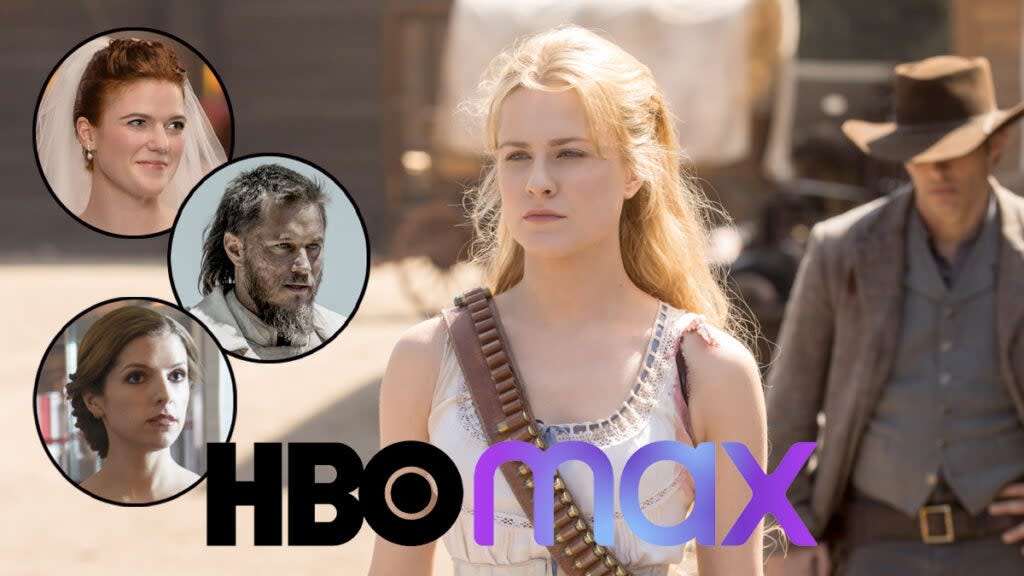Will HBO Max’s Content Cuts Help or Hurt Warner Bros. Discovery in 2023?

While consumers may revolt over HBO Max yanking shows like “Westworld” and “The Nevers” to license them to third-party free, ad-supported streaming television (FAST) services, industry insiders say Warner Bros. Discovery’s latest cost-cutting measures actually plays well to investors.
The move signals that CEO David Zaslav and his team believe “siloing certain assets is no longer the best way to maximize value,” Monroe Capital’s head of media finance Matthew Rosenberg told TheWrap.
“The question has been how do we build enterprise value in HBO Max? Up until now, it’s been let’s just send all of our stuff there,” Rosenberg said. “Maybe the anchor stuff belongs to be siloed, like the DC movies… but for less critical properties, maximizing value to that company could mean licensing it into the market rather than siloing it from within.”
While Zaslav’s content trimming in recent months has sparked criticism from both Hollywood creators and consumers, Rosenberg believes the efforts are ultimately focused on “cleaning up what has been inconsistent and getting the company in much better footing to better invest in the pipeline.”
“They’re making a lot of difficult decisions now that the previous regime couldn’t do overnight,” he noted. “Going forward, they don’t want to put good money behind bad money. So 2023 investment can’t be doubling down on a strategy the new regime doesn’t believe in.”
Also Read:
‘Westworld’ and Other Shows Pulled by HBO Max to Be Licensed to Free Ad-Supported Streamers
There’s a financial benefit of “unbloating” HBO Max’s content catalog, Morning Consult entertainment and media analyst Kevin Tran said. In addition to the company saving on residual payouts to producers and stars on the shows it’s offloading, the purge also “minimizes the money it sinks into titles that aren’t valuable to them.”
Warner Bros. Discovery, which reported an adjusted earnings loss of $634 million in its direct-to-consumer division for the third quarter of 2022 and has been undergoing a restructuring targeting up to $3.5 billion in cost savings, said in an amended filing with the U.S. Securities and Exchange Commission on Wednesday that it anticipates up to $5.3 billion in total pre-tax restructuring charges — including between $2.8 billion and $3.5 billion in write-offs write-offs on content. That’s $1 billion more in cost savings from content write-offs than the company had projected just two months ago.
But Tran also pointed out that there are major risks associated with the culling of so many films and TV shows.
“They could anger fans of the shows that are pulled from HBO Max,” he warned. “Additionally, from a talent perspective, showrunners and actors could become more hesitant to work with a company that they view as too eager to axe pricey or declining shows from their streaming platforms.”
While pulling shows from HBO Max doesn’t look great for Hollywood types, Brian Frons, the former president of ABC Daytime and a professor for UCLA’s Anderson School of Management, argued that isn’t the audience that Zaslav is primarily focused on appeasing at the moment.
Also Read:
HBO Max Cancels Comedy Series ‘Minx’ Despite Season 2 Renewal
“He’s looking at Wall Street. He’s carrying like $50 billion in debt and so his audience isn’t so interested in what he spends as what he doesn’t spend,” Frons told TheWrap. “If you think about what he’s doing from a non-Hollywood perspective and a Wall Street perspective, what he’s trying to do is keep as much revenue as he can, while lowering his programming expenses, therefore, in theory, delivering a better bottom line.”
In addition to cutting programming costs, Frons said Zaslav is likely examining marketing costs and overall headcount to improve the bottom line .
“The rest of the streaming industry is looking at the exact same issues, you know, maybe with the exception of Netflix, because everybody else in the streaming business is in Warner Bros. Discovery’s situation where they’re trying to either increase profits or get to profitability in their streaming business,” he said. “And they’re trying to reconcile those two issues with the maximization of their library revenue or content licensing revenue.”
And while Warner Bros. Discovery aims to license out some of its content to competitors, the company also plans to roll out its own FAST service offering in the U.S. in spring 2023 featuring content from both HBO Max and discovery+, which could possibly include some of these recently pulled shows. The addition of an ad-supported streaming service may help Warner hit the $1 billion earnings target that Zaslav set for its streaming business by 2025.
“Profitability, not purely sub count is our benchmark for success,” he said on the company’s Nov. 3 earnings call. “While we’ve got lots more work to do, and some difficult decisions still ahead, we have total conviction in the opportunity before us.”
Also Read:
How Disney+’s Ad Tier Can Pull the Company Out of a Fiscal Slump | Analysis

